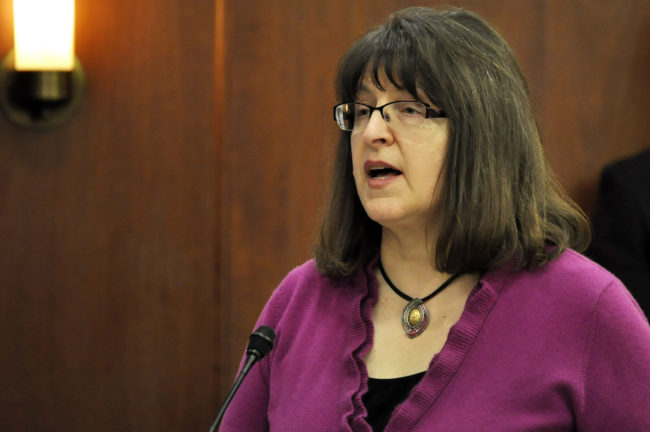
A bill introduced in the Alaska legislature this week reopens debate on “death with dignity” in the state. The legislation would allow terminally ill residents to request a lethal prescription to end their life.
Terms such as “aid in dying,” “physician-assisted suicide” and “death with dignity” may sound similar, but a 2013 Gallup poll found that Americans are less likely to support such laws if it uses the word “suicide.”
That’s why Anchorage Rep. Harriet Drummond is quick to say House Bill 99 is not an “assisted suicide” bill.
“This isn’t about suicide. This is about somebody who is already going to die,” Drummond says. “They’ve been sentenced to die by their disease or condition.”
Drummond says she introduced the legislation this week after people who live in her district requested it. To her knowledge, it is the first bill in the state legislature to give terminally ill individuals with less than six months to live the option of requesting a lethal prescription from a physician.
Drummond says the bill is all about choice and tries to keep the process voluntary for all parties involved.
“Nobody is being forced to do this, and should this become law, this is still a choice on behalf of everybody,” Drummond says.
University of Illinois law professor Eric Johnson says giving patients the choice to end their own lives could lead to wrongful suicide.
“There are good reasons for being afraid that if a law permitting assisted suicide was passed, people who are vulnerable might decide to take their own lives in situations where they are less than entirely free to make that decision,” Johnson says.
The poor, mentally ill and disabled are populations Johnson thinks could fall victim to Drummond’s bill.
Johnson argued against assisted suicide in the 2001 state Supreme Court case Sampson vs. Alaska. His argument was that the dangers of legalized euthanasia could lead to individuals feeling pressured to take their own lives due to economic or personal factors. The court ruled in Johnson’s favor and left the debate for the state legislature to decide.
Drummond says her bill attempts to create safeguards for vulnerable populations. She says it’s modeled after Oregon’s “Death with Dignity” law enacted in 1997.
“We believe the Oregon model is the model to follow and it has worked,” says George Eighmey, who is a board member of the Death with Dignity National Center in Oregon.
The organization helps other states draft legislation similar to Oregon’s law, which was the first in the nation. Eighmey estimates that it takes 2-3 legislative sessions for a state to pass a bill such as HB 99.
He says Drummond’s bill parallels Oregon’s law with how it requires two physicians to diagnose a patient as terminally ill. The patient must also make oral and written statements about their wish to die, and be the only one to administer and ingest the lethal medication.
“No one can inject you, no one can pour it down your throat, no one can put it in your IV bag or anything like that. You have to be able to consume it yourself,” Eighmey says.
Despite these safeguards, some remain unconvinced.
Bishop Edward Burns of the Catholic Diocese of Juneau sees HB 99 as promoting a culture of death. He interprets it as giving doctors too much power to decide who lives and who dies.
“I think it’s important for us to always stand up for the dignity of human life,” Burns says.
Because she’s a Democrat in a Republican-controlled legislature, Drummond’s not optimistic the bill will make much progress this session.
“Unless there is a huge outcry of constituents that want it to be heard, I doubt it will get a hearing,” Drummond says.
HB 99 has been referred to the Judiciary and Health and Social Services committees. If the bill passes, Alaska would join Oregon, Vermont and Washington as the only states to legalize a “death with dignity” law.
A court decision in Canada recently made it legal nationwide in that country.
